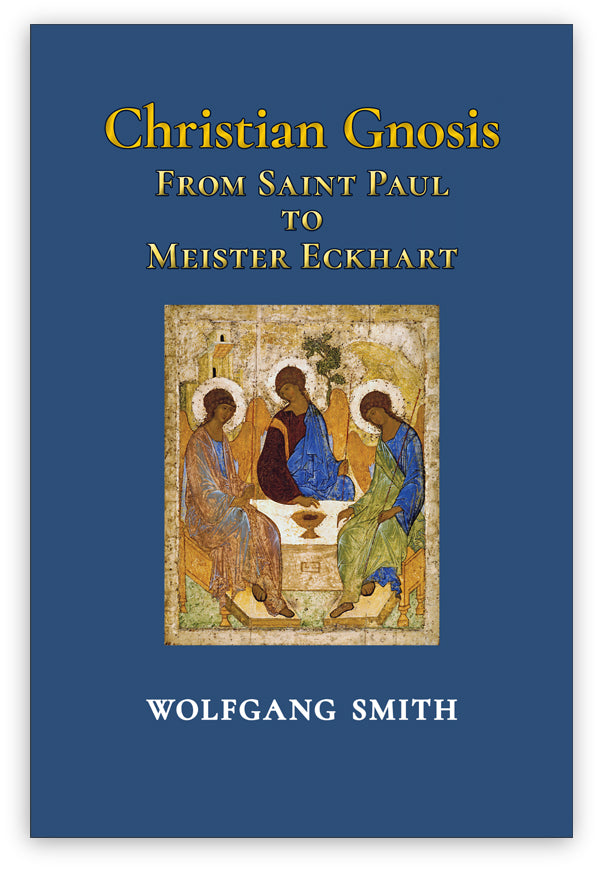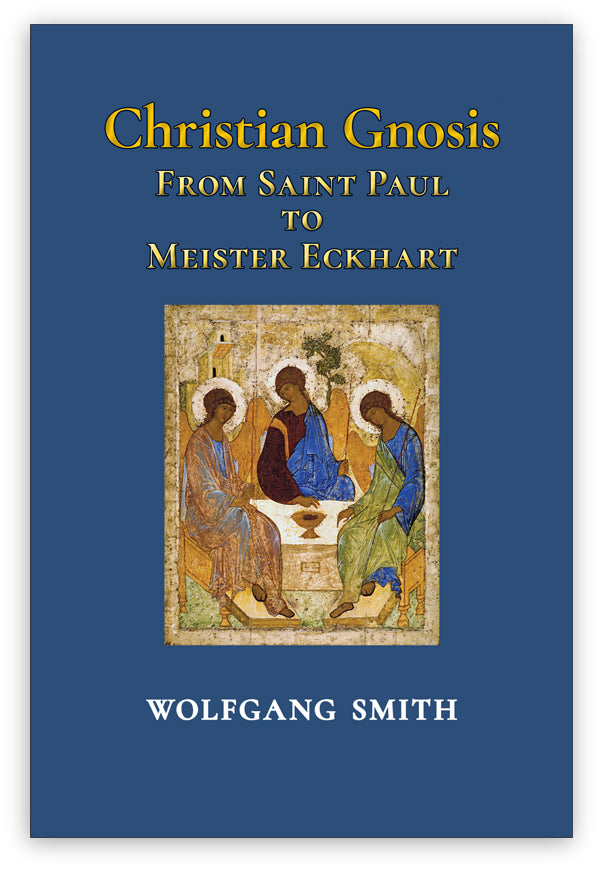Christian Gnosis
Christian Gnosis
From Saint Paul to Meister Eckhart
By Wolfgang Smith
248 pp
Couldn't load pickup availability
About the Book
Basing himself on Christian sources—literally ‘”from Saint Paul to Meister Eckhart’—Wolfgang Smith formulates what he terms an ‘unexpurgated’ account of gnosis, and demonstrates its central place in the perfection of the Christ-centered life. He observes, moreover, that the very conception of a ‘supreme knowing,’ as implied by the aforesaid sources, has a decisive bearing upon cosmology, which moreover constitutes the underlying principle upon which his earlier scientific and philosophical work—beginning with his ground-breaking treatise on the interpretation of quantum mechanics—has been based. The ‘fact of gnosis,’ however, has a decisive bearing on the theological notion of creatio ex nihilo as well, and it is this imperative that Smith proposes to explore in the present work. What is thus demanded, he contends, is the inherently Kabbalistic notion of a creatio ex Deo et in Deo, not to replace, but to complement the creatio ex nihilo. This leads to an engagement with Christian Kabbalah (Pico de la Mirandola, Johann Reuchlin, and Cardinal Egidio di Viterbo especially) and with Jacob Boehme, culminating in an exegesis of Meister Eckhart’s doctrine. The author argues, first of all, that Eckhart does not (as many have thought) advocate a ‘God beyond God’ theology: does not, in other words, hold an inherently Sabellian view of the Trinity. Smith maintains that Eckhart has not in fact transgressed a single Trinitarian or Christological dogma; what he does deny implicitly, he shows, is none other than the creatio ex nihilo, which in effect Eckhart replaces with the Kabbalistic creatio ex Deo. In this shift, moreover, Smith perceives the transition from ‘exoteric’ to ‘esoteric’ within the integral domain of Christian doctrine.
Praise
About the Author
View full details


